The second workshop of TheGAME project brought together all project researchers and staff to present and reflect on methodologies and ethics of studying a contemporary migration route
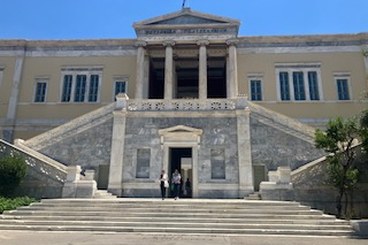
Date:
Event location: National Technical University, Athens, Greece
Type: TheGAME events
The second workshop of TheGame , “Writing the Route,” brought together the project researchers and staff at the National Technical University of Athens, from 29-30 May, 2024, to reflect together on questions of methodology.
This workshop aimed to achieve two primary objectives: firstly, to provide each member of TheGAME project an opportunity to present their primary methodological approach and reflect on how the specificities of their respective research contexts have influenced their work. Secondly, the workshop aimed to explore the alignment of individual methodologies with the broader methodological framework and objectives of the overarching project, to reflect on what it means to be “writing the route” together. On the final afternoon, we visited key sites relating to migration in Athens.
The first session, “Insights from the field,” was chaired by Alexandra Rijke, and included presentations reflecting on the methodological, practical, and ethical challenges researchers and cultural mediators have encountered within the complex and changing Balkan Route. Lucija Klun presented on the methodology of her multi-sited doctoral research with refugees in Greece, Bosnia and Herzegovina, and Slovenia. Among other topics she discussed her own positionality, the type of rapport she established with refugee research participants and authorities such as camp managers, and the ethical considerations this raised. Roberta Gentili shared insights from her ongoing doctoral field research in Una Sana Canton, Bosnia and Herzegovina, including challenges of recruiting refugee-migrant research participants, and of negotiating difficult, potentially traumatic topics in research interviews. Also conducting research in Bosnia, but based in Sarajevo, Yolanda Weima presented her preliminary field research on formal camps and understanding their relation to the changing route.
Continuing the first session, based on his own training and experience, Shahid Aziz presented on the professional role of being a cultural mediator, including the training required, and how the role is far more than language interpretation. Further demonstrating the importance of this role in research and service provision, Nasim Lomani presented (remotely) on his many years of experience of being a cultural mediator with refugees in the Greek context. Concluding the session, Valeria Raimondi presented on her ongoing research in Athens and camps in mainland Greece. Among many reflections, she raised questions about how research can address life in camps, with only limited access to camps, and the related practical and ethical challenges of including camp residents in research, such as interview locations and informed consent.
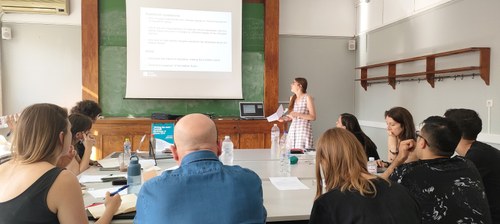
The second session, “How to study a route” was chaired by Yolanda Weima and included presentations reflecting on diverse methodological challenges. In the first presentation, Emma Farina reflected on archeological methods, and how archeology of the contemporary can expand the definition of makeshift camps, through attention to the distinctive materiality of these sites. Following background on the physical, political, and social aspects of border walls, Alexandra Rijke discussed methodological challenges in researching sites which are often “military zones” or otherwise difficult to access and observe. Viki Mladenova presented initial findings and reflections on her preliminary research in North Macedonia, an under-researched context within the migratory route.
Continuing the session, Vasiliki Makrygianni introduced her proposed approach to studying migration and migration management in the Greek archipelago, as well as considerations of digital space as central to how people negotiate their mobilities. Turning our attention to asylum systems across the route, Lorenzo Vianelli discussed the effects of EU enlargement on asylum systems and policies across several countries in the Balkan Route. Finally, Ettore Asoni presented on methodology and “the archive,” and what a counter-archive might mean in relation to existing representations of the Route.
The second day centred around a period of discussion in smaller groups, building on the presentation themes from the previous day. This session was highly valued by participants, as a time to share and discuss experiences and challenges of working in research contexts that can be methodologically, ethically, and emotionally exacting. Following summaries of the discussions by each small group to the broader team, the morning closed with reflections by Claudio Minca on the methodology of the project.
The team then gathered for lunch at Steki Metanaston, a solidarity social centre for refugees, immigrants, and local people, that has been operating for over two decades, and which now operates a collective kitchen, serving hundreds of meals several times each week. Following the delicious meal, we learned more about the history of the place, their work, and their aims, as well as the broader context in which they are situated.
A short walking tour of key sites relating to migration in the neighbourhood included passing closed squats which had hosted migrants such as the well-known City Plaza, and viewing Exarchia square, which is now controversially walled-off for the construction of a metro-station. We ended the day and closed the workshop with coffee in Viktoria Square, which, although its uses have changed over the past decade, remains a key site in the journeys of many refugees and migrants.
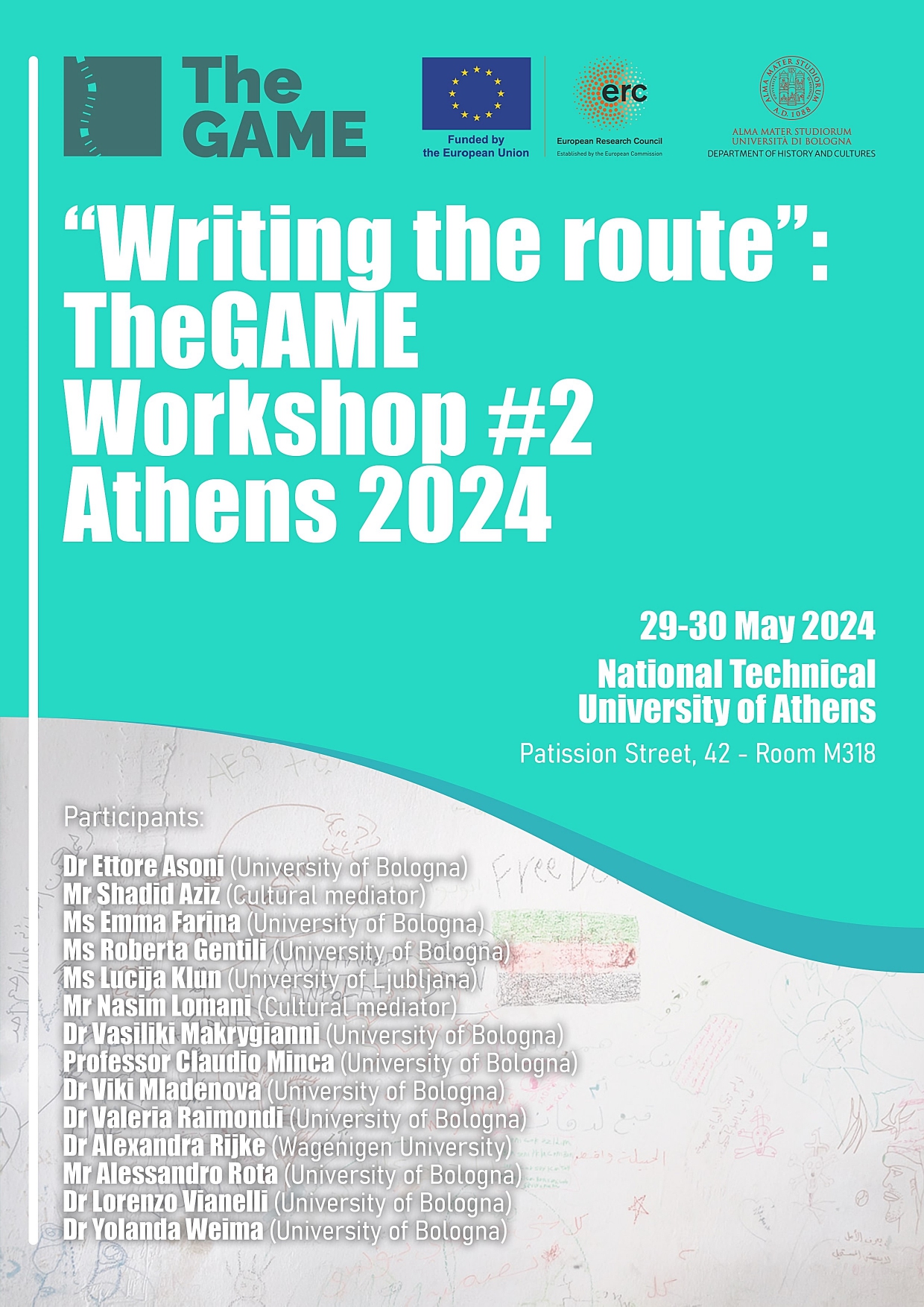
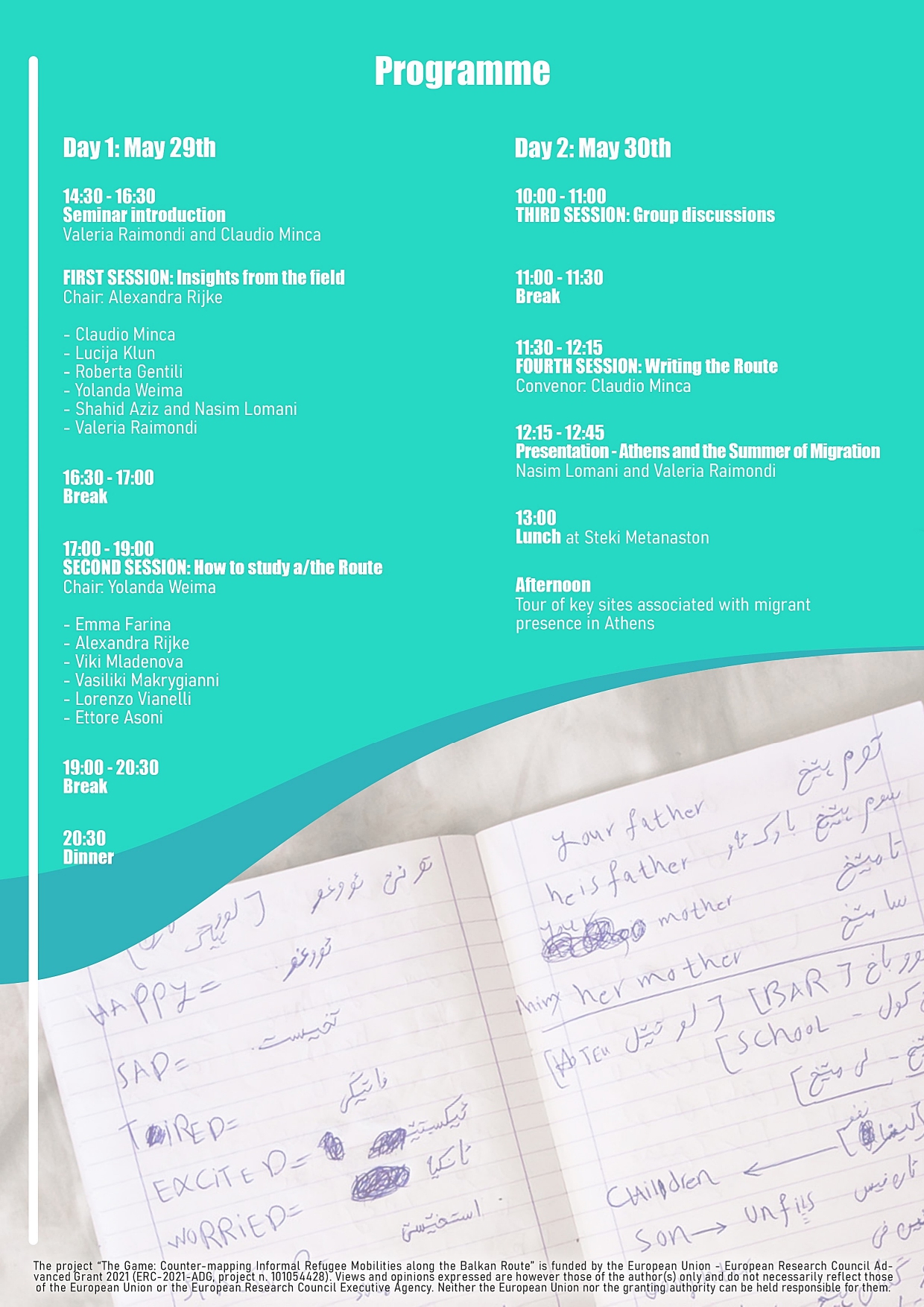
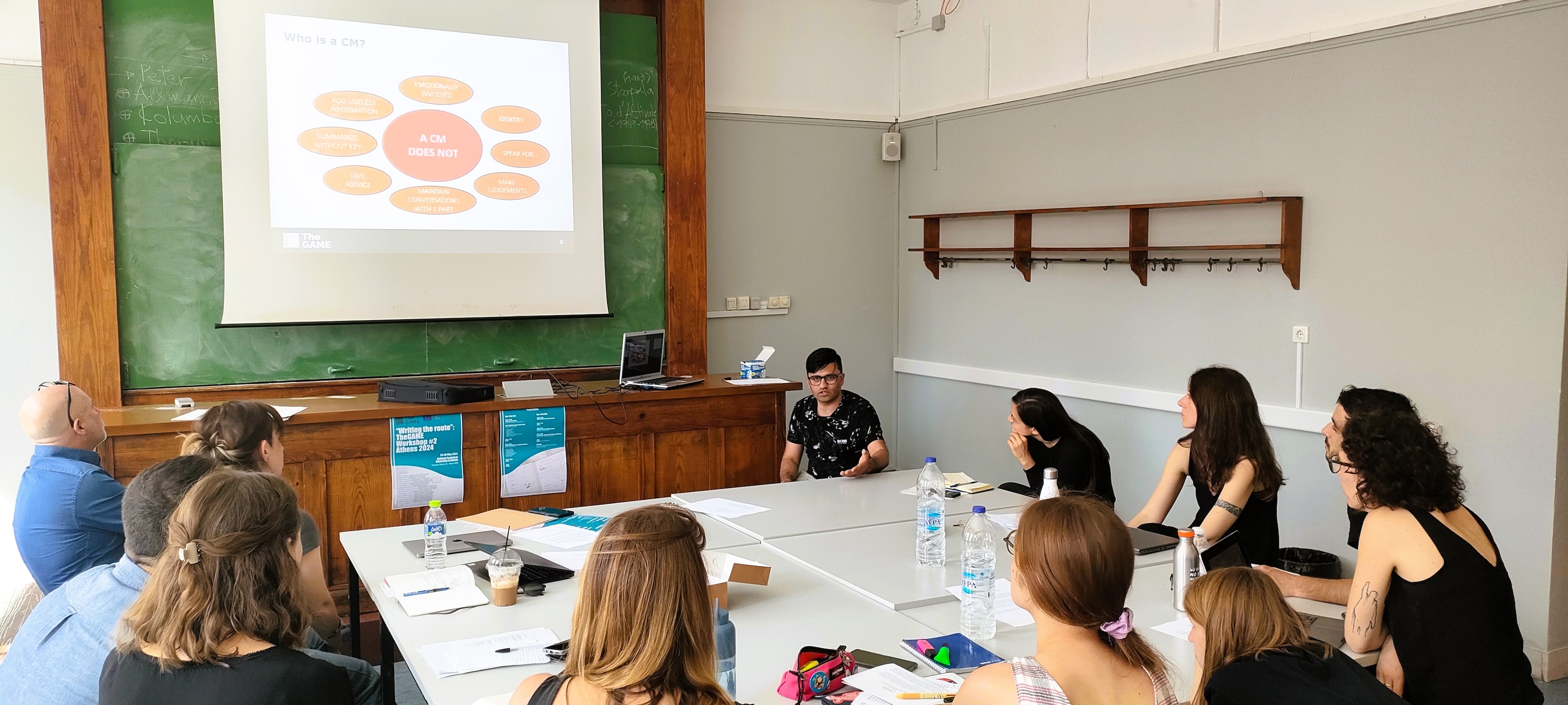
Shahid presents on the role of cultural mediators in research
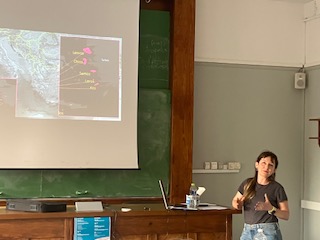
Vasiliki presents to the group
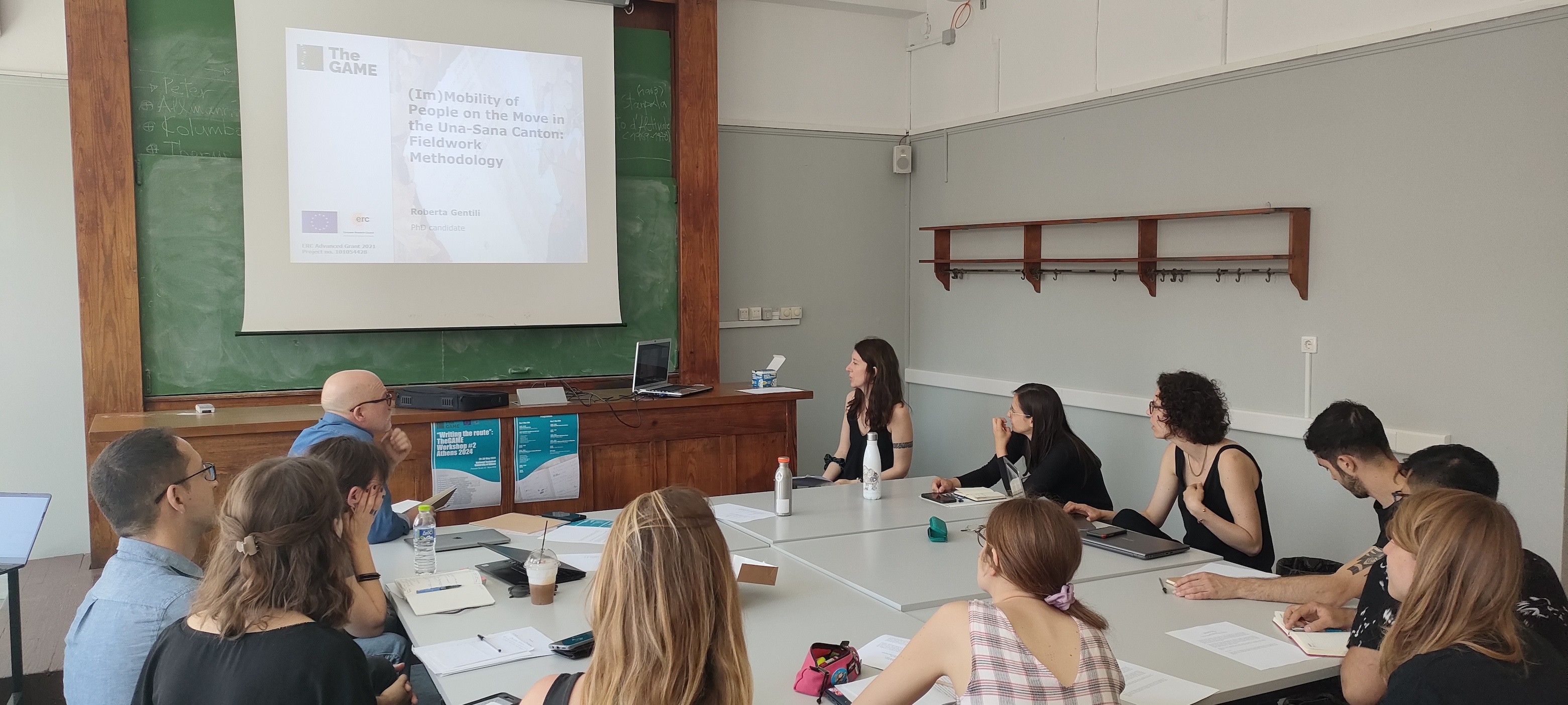
Roberta presents on research methodologies and challenges
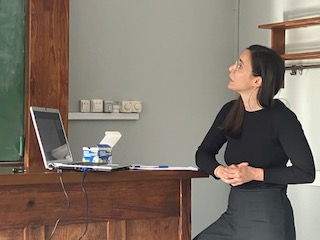
Viki presents on her research in North Macedonia
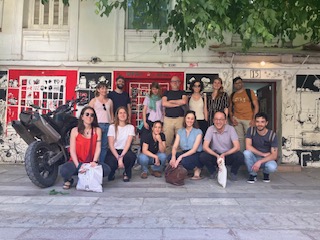
TheGame team after lunch at Steak Metanaston
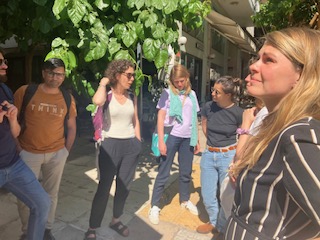
Team members view key sites on a walking tour in Athens
National Technical University, Athens, Greece